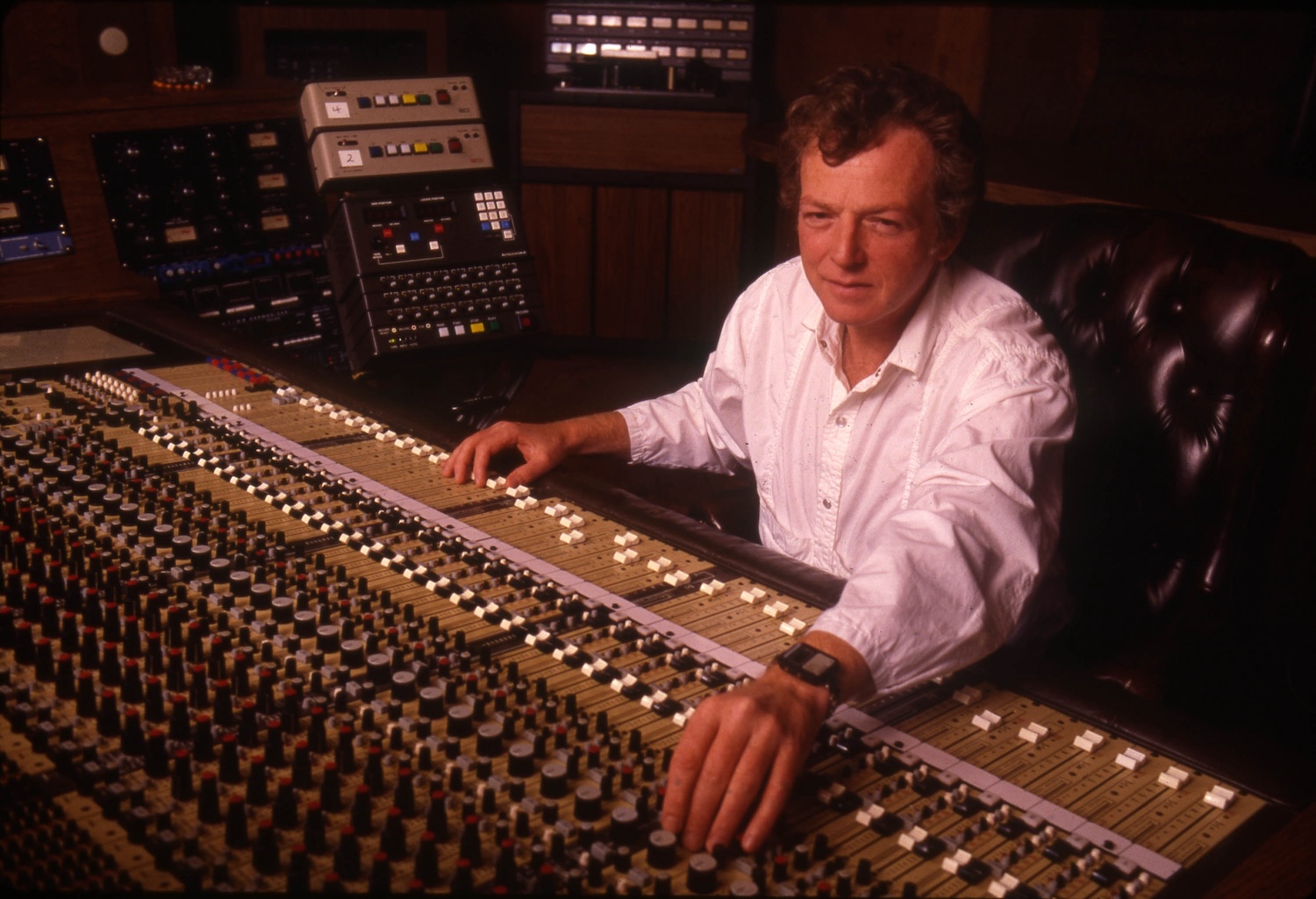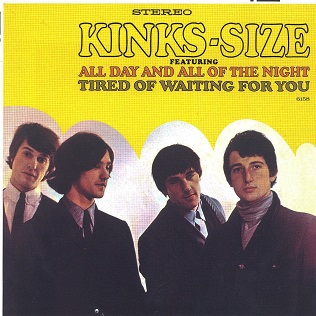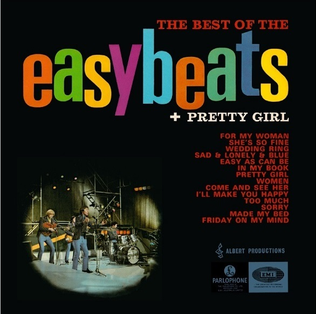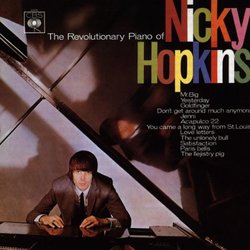The Who, Kinks Producer Shel Talmy Passes Away (August 11, 1937— November 14, 2024)
Harvey Kubernik explains why Shel mattered so much
The legendary and influential record producer Shel Talmy passed away yesterday (November 14th) from a stroke at age 87. Talmy arranged and produced the Kinks recordings 1964-1967, My Generation by the Who, and hit singles by the Easybeats, Manfred Mann, Chad & Jeremy, and worked with the Creation and Pentangle. He produced early sessions for a young David Bowie.
Talmy was raised in Chicago, and a graduate of Fairfax High School in West Hollywood. He later attended Los Angeles City College, before relocating to London in early 1963, where his A&R skills and recording endeavors changed our world.
I knew Shel for half a century and interviewed him numerous times. Our last encounter was in 2022 for a recording studio documentary.
In November he emailed me touting the skills of pianist and arranger Tom Parker’s work on the Laurie Styver’s album Gemini Girl: The Complete Hush Recordings on High Moon Records.
Below are some excerpts from interviews I conducted with him this century.
Shel Talmy: “I went to Fairfax High School and Los Angeles City College. Before I went to England in the early sixties.....
"In Los Angeles and Hollywood for my sessions I insisted on being there for the mastering on everything I did. I started as an engineer with Phil Yeend. I spend a lot of time trying to perfect the sounds we were getting at Conway studios. We spent time isolating instruments and working on drum sounds. Working on guitar sounds. In terms of days and hours. Microphone placements we did were utilized with the Who and Kinks.
Nik Venet gave me his demos when I first came to England that is what I used to talk my way into a gig at Decca. What I learned from Nik, bless heart, was how to handle artists. He allowed me to come to Capitol while he was doing stuff. I went to one of his Lou Rawls’ sessions. Lou and Sam Cooke were fuckin’ brilliant. I would hear how he would talk to artists and the engineers. And I have done that forever.
I returned the favor and I wrote to Nick and said there’s a band called the Beatles you really got to take a listen to. I think they are gonna be enormous. Never heard another word. 30 years later I ran into Nik at a studio and he told me when he got my letter he ran into Alan Livingston’s office, the head of Capitol and badgered them into signing the Beatles. Nik signed the Beach Boys in 1962.
I brought with me from Conway a way to using the equipment of making everything louder apparently louder than it actually was. I did that with bringing up a guitar through channel one, which was right at the beginning of distortion and the other one which was normal. So, I used to bring up the distorted one underneath the good one and the entire level went up. And I always tried to do everything I could without distorting. So, I was always near the red line of the meter. I brought that with me. I liked hearing records that I think it actually expands the vocal audio range of what you’re hearing. As far as echo, Conway had a damn good echo chamber that Phil worked on and it was in a little closet. I like echo where it applies and I don’t like echo where it doesn’t apply. There’s a lot of stuff I think that sounds a hell of a lot better dry then it does with echo. I loved working with Chad & Jeremy. They were more folky and orchestrally-arranged. I loved working with the Pentangle.
The UK technical people didn’t think I was weird. They thought I was different because I was pretty much the first American producer there. The first place I went to was IBC on Phil’s recommendation. That’s where Phil worked. And, they were way ahead of everybody else. In terms of gear, they had young engineers who were willing to experiment. Glyn Johns. And then Olympic. Initially it made my life easier. Glyn Johns and Eddie Kramer, who I used twice. Gus Dudgeon was my assistant at Olympic with Keith Grant.
I always felt the song was seventy-five per cent of the record.
1967 and the Summer of Love? By NME or Melody Maker, I was record producer of the year. I thought Sgt. Pepper was brilliant. Psychedelic or not it had form as far as I was concerned. Maybe they went a little overboard with the psychedelic stuff. The songs were great. What they did was a little too long for me. If there was a great song that went five minutes, that’s cool. Even six, maybe at a stretch. But I still subscribe to the fact that if you’re gonna hear a great song you’re gonna pretty much know it in the first eight bars. And then it continues to develop, three to four minutes is about the right amount of time for it.
Ray Davies of the Kinks. How we used to work it, and at that point in time, was the most prolific songwriter I’ve ever known. He’d go home and bring you back a dozen songs the next day. What we used to do was sit down, in a studio, and he actually played piano, not guitar, and he’d play me the stuff. I heard four bars of ‘Sunny Afternoon’ and I said ‘that’s gonna make number one.’ He‘d play me songs. ‘That’s good.’ ‘That’s not quite there yet. Let’s put that aside. He went along with that. We never did demos. Sitting down and playing the stuff live.
‘See My Friends.’ Jon Mark was already influenced by Indian stuff. And I played a recording he did to Ray. And Ray came back the next day with ‘See My Friends.’ We had to tune down the regular guitar and double-tracked it for a kind of sitar sound. It broke a lot of ground. We were so far, as you know off the market that it was the lowest chart record I ever had with the Kinks.
I have been saying for years that Dave Davies is probably the most under rated guitarist in rock ‘n’ roll. A damn good guitarist. He’s also a very good songwriter. He’s not as good as Ray, but then again, very few people are. Ray was in a class by himself. As was Pete Townshend. Lennon and McCartney. Dave was one small step beneath that in terms of how good he was. But he wrote some damn good stuff.
Contrasting Pete and Ray. The easy way in broad strokes…Is that Ray was the major social commentator of what was going on in England at that time. Pete was much more into early blues and what he could so with his guitar and loved sound. Of course, I encouraged all the power chords and all that kind of stuff and that’s what attracted me when I first heard them. I thought they were the first rock ‘n’ roll band I heard since I came to England. When I first arrived, I thought everything was incredibly polite. Pete and Ray, the only thing they really have in common is that both of them are really brilliant songwriters. I think it’s fair to say that Ray could not write a song that the Who would do and Pete could not write a song that the Kinks could do.
As a producer I knew they had global appeal.
Nicky Hopkins…With the Who and the Kinks. I found him real early. Nicky was one of my favorite people. A really nice guy. Easy to work with. A heavy-duty talented musician. I had him playing live with all these people, by the way. I didn’t bring him in for overdubs. I don’t know how to describe him. When you hear something that’s un definable but you know it is brilliant. That’s what I saw with Nicky Hopkins. All the bands loved him that I introduced him too.
“Pye #2 studio in the basement of ATV House, was the band studio and am guessing the dimensions about 20X 30 to 40. Pye #1 was the orchestral studio and a lot bigger, never worked in it. Entering the studio, the control room was on the left, again guessing dimensions 10 X 15. We had Ampex tape machines, 3-track and mono, and a little later, 2-track. They had a good selection of mikes, Neumann, Telefunken, Shure, AKG etc, and I made use of a lot of them as I was miking drums with a dozen mikes. There was also a good B3 organ with Leslies that John Lord played for the first LP, and a good piano, I think a baby grand that Nicky Hopkins played on. The drum corner was near the control room and I had guitar and bass amps against the walls with baffles around them. This studio had really good acoustics and one of the reasons it was in constant use.”











































.png)








